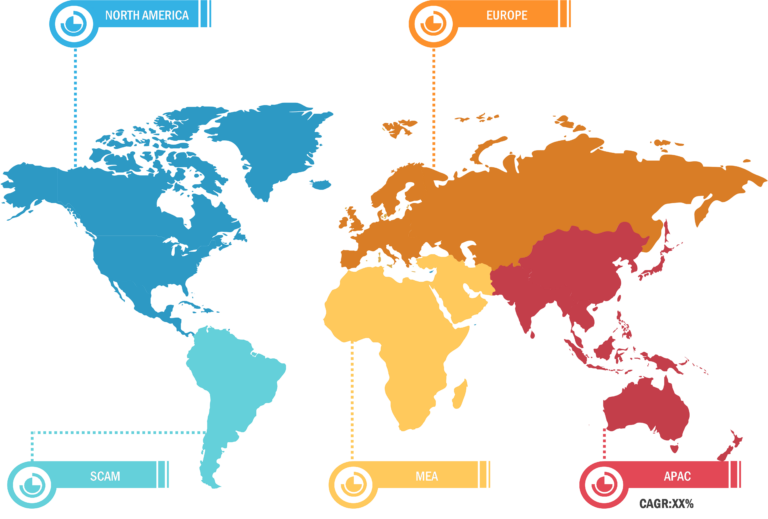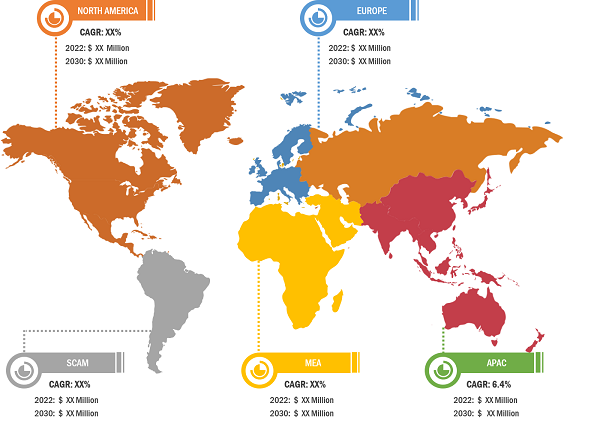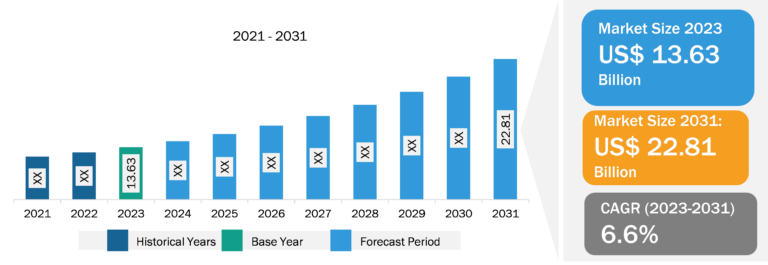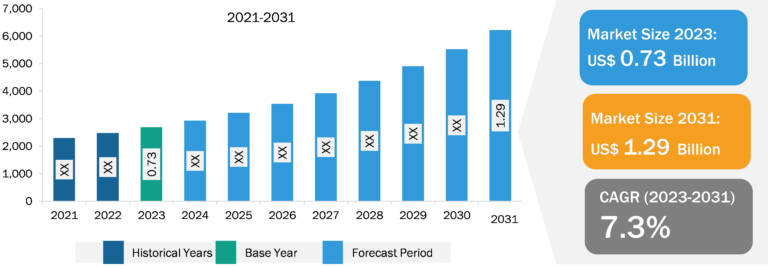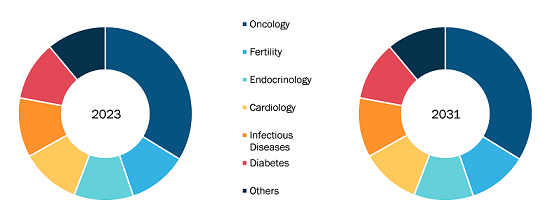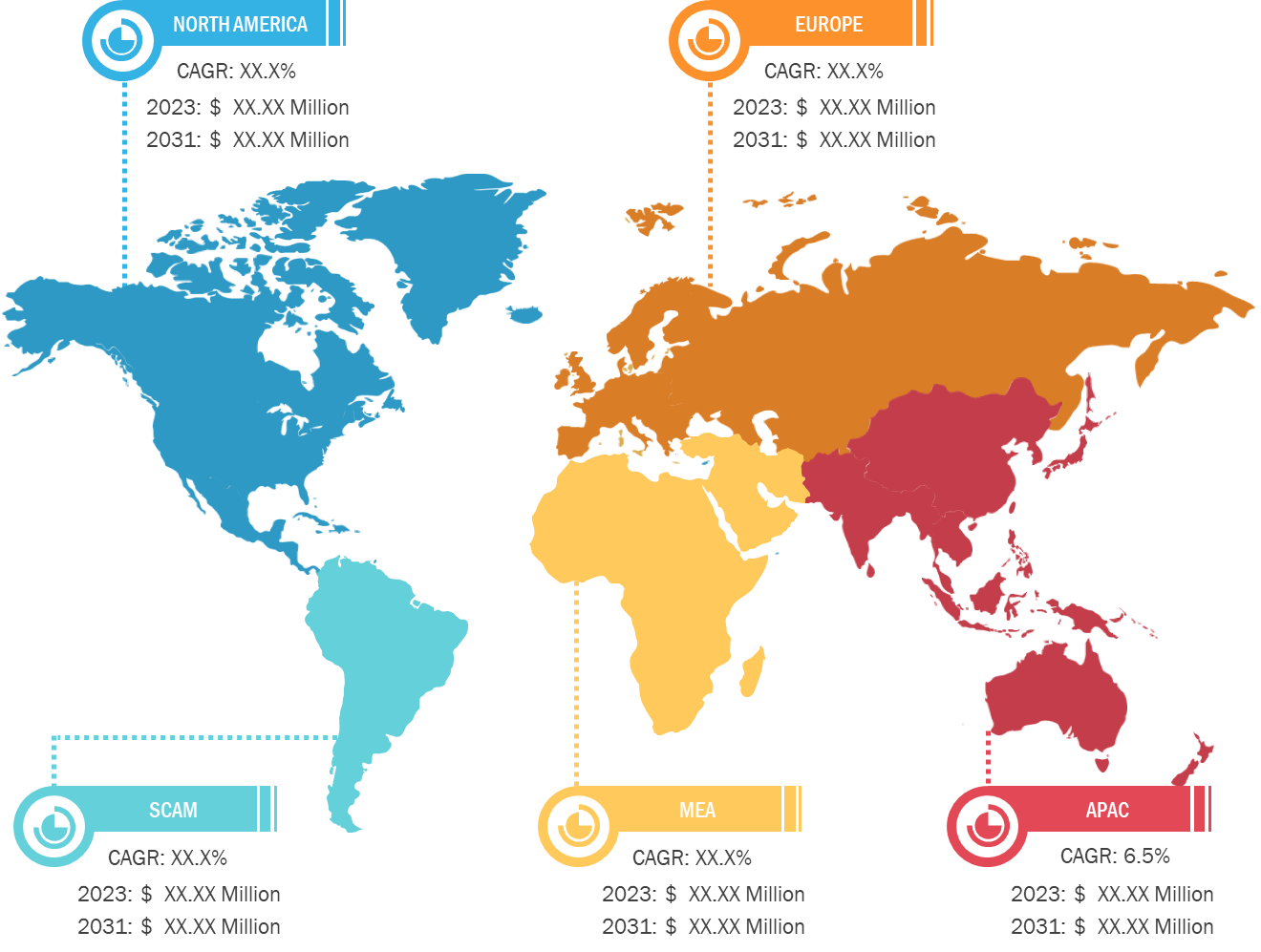
Transmucosal Drug Delivery Systems Market
Based on geography, the transmucosal drug delivery systems market is segmented into North America, Asia Pacific, Europe, the Middle East & Africa, and South & Central America. Asia Pacific is anticipated to grow at the highest CAGR from 2023 to 2030. In terms of revenue, North America dominated the transmucosal drug delivery systems market in 2023. The US is the major enabler of market growth in this region, which can be attributed to factors such as the increasing cases of chronic diseases such as diabetes, asthma, and cardiac diseases, and the growing number of product launches by key players.
Rising Adoption of Drug Delivery Systems for Disease Management Fuels Transmucosal Drug Delivery Systems Market Growth
Transmucosal drug delivery is a preferred route of drug administration owing to the sustained efficacy of this type of delivery. Transmucosal routes such as intranasal, buccal, sublingual, and rectal are noninvasive methods of the systemic delivery of drugs. They are particularly useful as caregivers or patients can administer these drugs without the need for expert personnel. Moreover, a rapid onset of action with reduced first-pass metabolism makes them ideal for palliative and end-of-life care. They work fast to relieve symptoms and offer patients quick relief. As a result, transmucosal delivery systems have become a popular choice in the management of various chronic diseases, such as cardiovascular diseases, diabetes, and chronic respiratory diseases. As per an article published by PubMed Central in January 2020, a study was carried out for the investigation and comparison of the safety and pharmacokinetics of dihydroergotamine (DHE) when administered in the form of intranasal DHE powder (STS101), intranasal DHE spray (Migranal), and intramuscular (IM) DHE injection in healthy subjects. The study concluded that STS101 is an easy-to-administer, non‐injected, acute treatment for migraine with a favorable tolerability profile. It is further expected to facilitate rapid and consistent pain relief, and suppress migraine symptoms without recurrence.

Numerous pharmacological drugs are offered as oral transmucosal formations; these include cardiovascular agents, sedatives, and analgesics. Biodegradable oral films aid in drug delivery to the systemic circulation, which is highly advantageous for individuals with dysphagia, repeated vomiting, hypertension, heart attack, asthma, nausea, paralysis, and mental disorders. These oral fast-dissolving films are thin adhesive strips that are placed on the patient’s tongue or any oral mucosal tissue.
Therefore, advantages such as ease of administration, high bioavailability, systemic drug availability, and rapid action fuel the transmucosal drug delivery systems market growth.
Factors Limiting Market Growth:
The intake of drugs through mucous membranes may cause irritation, inflammation, or allergic reactions at the site of administration. Additionally, all drugs are not suitable for transmucosal delivery, which can be correlated with their physicochemical properties such as molecular size or requirements for systemic distribution. Thus, the pool of drug molecules that can be effectively delivered through mucosal routes is limited. Therefore, the biocompatibility concerns, hampering the suitability of drugs for transmucosal delivery methods, impede the transmucosal drug delivery systems market growth.
Segmental Overview
The “transmucosal drug delivery systems market analysis” was carried out by considering the following segments: systems and end user. The market, by systems, is segmented into buccal route, rectal route, nasal route, and others. In terms of end user, the market is segmented into healthcare facilities, homecare settings, and others. The scope of the global transmucosal drug delivery systems market report entails North America (US, Canada, and Mexico), Europe (Germany, France, Italy, UK, Spain, and Rest of Europe), Asia Pacific (China, Japan, India, Australia, South Korea, and Rest of Asia Pacific), the Middle East & Africa (South Africa, Saudi Arabia, UAE, and Rest of Middle East & Africa), and South & Central America (Brazil, Argentina, and Rest of South & Central America).
Transmucosal Drug Delivery Systems Market: Competitive Landscape and Key Developments
Teva Pharmaceutical Industries Ltd; Cigna Corporation.; BioDelivery Sciences International, Inc; 3M; Henkel Finland Oy; GlaxoSmithKline plc; Aquestive Therapeutics, Inc; Camurus AB; Ximedica; and Noven Pharmaceuticals, Inc are among the key companies profiled in the transmucosal drug delivery systems market report. These companies focus on technological advancements to present new hi-tech products in their product portfolios. They also undertake geographic expansion initiatives to benefit from the growing consumer demand worldwide, which allows them to maintain their brand name in the global market.
As per company press releases, a few of the recent developments in the global transmucosal drug delivery systems market are mentioned below:
- In February 2024, Aquestive Therapeutics, Inc. presented a poster at the American Academy of Allergy, Asthma, and Immunology (AAAAI) 2024 annual meeting in Washington, DC, highlighting the positive pharmacokinetic (PK) and pharmacodynamic (PD) data from two complete clinical studies on sublingual Anaphylm (epinephrine) film.
- In August 2022, iX Biopharma Ltd launched IXB-322, a new program to expand its pipeline. The program aims to develop a sublingual dexmedetomidine wafer for the treatment of agitation in dementia and other indications. This initiative is part of iX Biopharma’s strategy to repurpose existing approved drugs using its proprietary WaferiX drug delivery platform technology.
- In May 2021, Tillotts Pharma AG, a part of the Japanese Zeria Group, added a new medication to its gastroenterology portfolio with the launch of AsacolTM 1g (mesalazine). The high-strength suppository is used to treat mild to moderate ulcerative proctitis symptoms in adults. This launch will help the company offer innovative therapies to patients with gastrointestinal diseases. AsacolTM 1g suppositories provide a convenient form of treatment for individuals suffering from ulcerative proctitis, as they only require a single daily dose.
- In April 2021, Teva Pharmaceuticals USA, Inc., a US affiliate of Teva Pharmaceutical Industries Ltd., announced the release of its generic version of Casana 1 (mesalamine) suppository medicine. The medicine is indicated for the treatment of active ulcerative proctitis (ulcerative rectal colitis) in the US.


